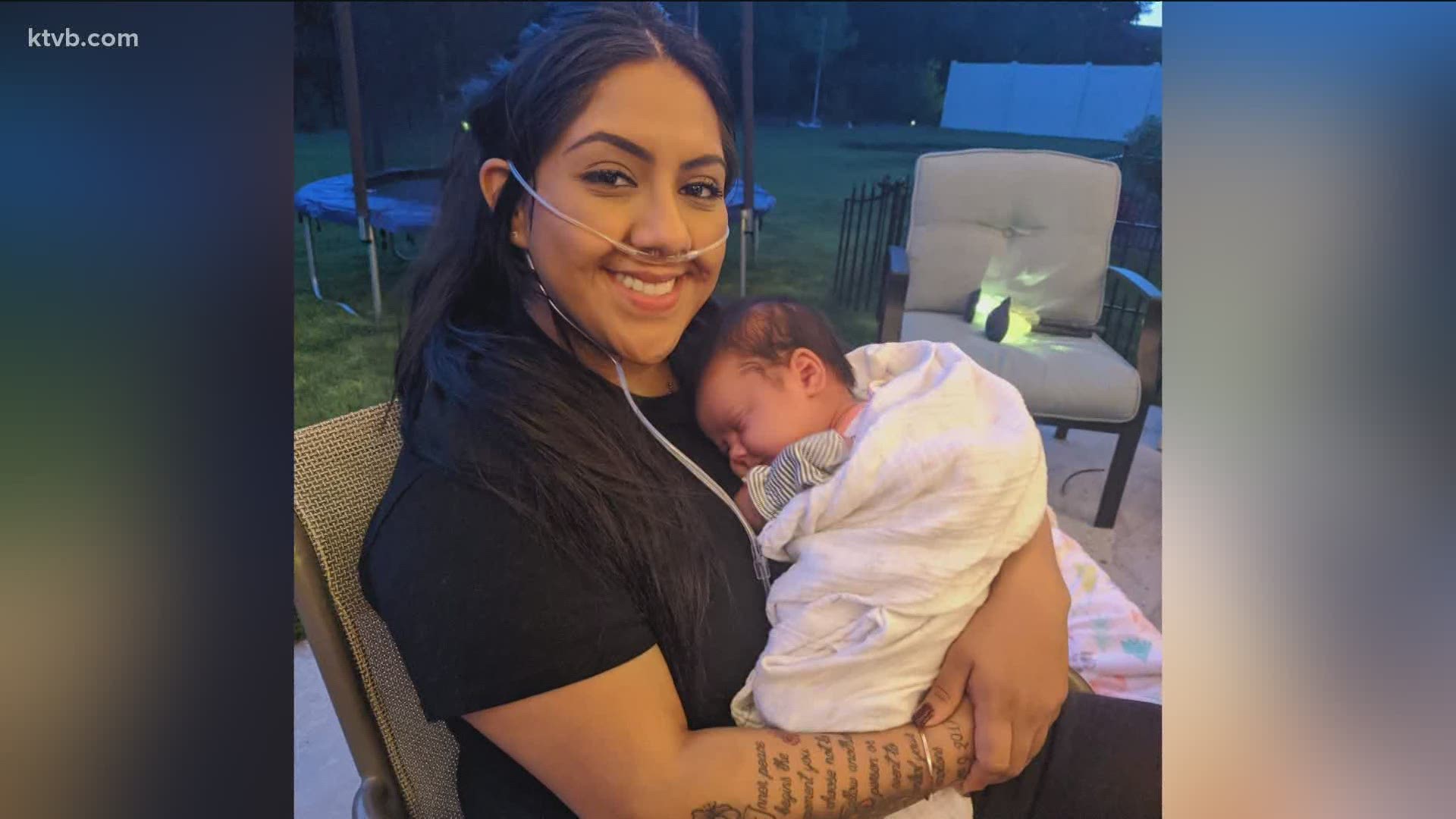BOISE, Idaho — An Idaho woman who is continuing to deal with the damage inflicted on her body and mind by COVID-19 spoke during Gov. Brad Little's press conference on Friday, emphasizing that younger adults like herself need to take the pandemic seriously.
Amelia Cortez became infected with COVID-19 in May during the third trimester of her pregnancy.
"I checked into St. Luke's on a late-night because I could not breathe," the 25-year-old said, speaking during the governor's press conference while attached to an oxygen tank. "My body was shutting down and my lungs were failing."
Cortez gave birth the next day, to a baby girl. Her newborn was whisked away immediately, and the new mother spent the next several weeks dangerously ill in the ICU, alone, except for Rachel Thain, who is Cortez's respiratory therapist, and other members of St. Luke's medical staff.
"My doctor came up to me at seven in the morning and said it's time to push, I told her I can't do it, I can't do it, I don't have the will, I don't have the strength," she told KTVB.
While in the ICU for three weeks, Cortez went through 15 liters of oxygen a day and needed to get down to eight before she could go home.
Cortez ended up on a machine that drew each breath for her, losing days at a time to delirium and hallucinations that had her believing she had woken up in another state, another country, or the basement of a grocery store, she recalled.
It was not until July that she was stable enough to be discharged from the hospital. And even still, the complications persist.
"I am not able to work. And I have to carry around an oxygen tank with me wherever I go," she said. "When I got out of the hospital, my mother had to bathe me. She had to dress me, she had to brush my hair, help me with my makeup. I could not walk ten steps without feeling like I was going to collapse."
The nights are the worst, Cortez said. Many times, feeling as if a weight is pressing down onto her chest, she has checked her tank to make sure the cord delivering her oxygen has not become kinked or disconnected.
"And it's not. It's your lungs that are damaged," she said. "I don't want to see any of my loved ones, or anybody else out there, experience what I go through."
Thain said Cortez's case isn't unusual as St. Luke's is seeing an increase in patients who are in their 20s and 30s.
"I don't want to see any more mothers lose time with their babies not being able to bond, the ICU psychosis that Amelie experienced is very, real you know," Thain said.
Cortez said the experience was traumatizing and is something that she has to live through every day, even six months after her ICU stay.
"I feel like I can't really gather my thoughts well like I used to, not being able to work has gotten me, I feel like less of a woman you know. I dunno, I just feel like im still fighting on my own, you know?" she said.

